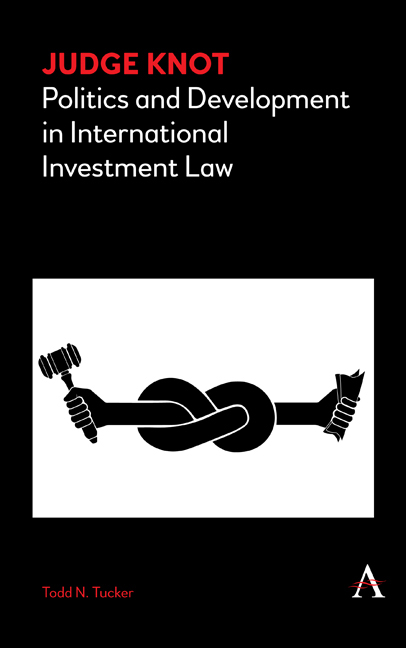Book contents
- Frontmatter
- Dedication
- Contents
- List of Illustrations
- Acknowledgments
- Introduction
- Chapter One Entering the Judge Knot
- Chapter Two Historicizing Investment Law
- Chapter Three Why Investors Demand Investment Law
- Chapter Four Why Arbitrators Supply Investment Law
- Chapter Five Why Investment Law Lasts
- Chapter Six Toward Global Popular Constitutionalism
- Appendix Methodology
- Index
- Frontmatter
- Dedication
- Contents
- List of Illustrations
- Acknowledgments
- Introduction
- Chapter One Entering the Judge Knot
- Chapter Two Historicizing Investment Law
- Chapter Three Why Investors Demand Investment Law
- Chapter Four Why Arbitrators Supply Investment Law
- Chapter Five Why Investment Law Lasts
- Chapter Six Toward Global Popular Constitutionalism
- Appendix Methodology
- Index
Summary
When I began this project in 2012, I was interested in the link between investmenttreaties and economic development. Namely, did these pacts make it more or less likelythat countries would move up the income ladder? As I dug in, it became rapidly apparentthat there were two ways of approaching this question. First, one could look at whetherthe act of signing or ratifying investment treaties actually succeeded in bringing in investment.This research area was already well trod by political scientists and economists, whotended to black- box what investment law was really about. A second approach (the oneI took) looked instead at how much discretion do investment- treaty arbitrators have, andwhat are the potential implications of this discretion for development?This question required that I speak to the individuals who are in the room—arbitrators themselves. This Appendix reviews how social scientists have historicallystudied adjudicators and how I extended and modified their approach in my primaryresearch, including through assembling original datasets of investment arbitratorinterviews and case outcomes.
- Type
- Chapter
- Information
- Judge KnotPolitics and Development in International Investment Law, pp. 191 - 198Publisher: Anthem PressPrint publication year: 2018



